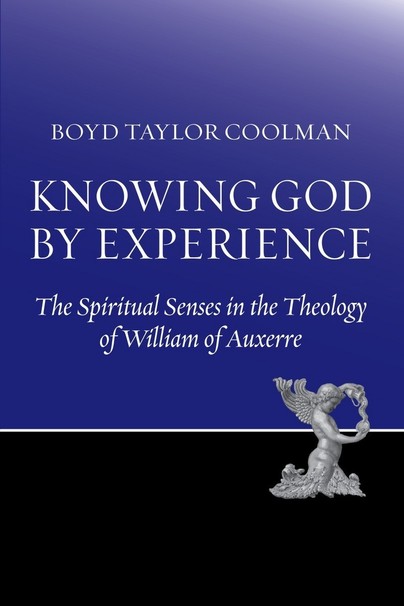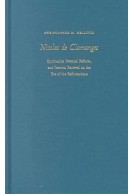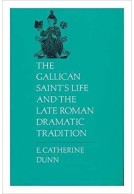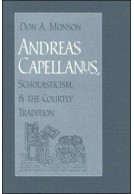Knowing God by Experience (Hardback)
The Spiritual Senses in the Theology of William of Auxerre
Imprint: Catholic University of America Press
Pages: 255
ISBN: 9780813213682
Published: 30th January 2004
Script Academic & Professional
Pages: 255
ISBN: 9780813213682
Published: 30th January 2004
Script Academic & Professional
You'll be £9.95 closer to your next £10.00 credit when you purchase Knowing God by Experience. What's this?
+£4.99 UK Delivery or free UK delivery if order is over £40
(click here for international delivery rates)
Order within the next 4 hours, 10 minutes to get your order processed the next working day!
Need a currency converter? Check XE.com for live rates
(click here for international delivery rates)
Order within the next 4 hours, 10 minutes to get your order processed the next working day!
Need a currency converter? Check XE.com for live rates
Author of the first true summa of theology, William of Auxerre (d. 1231), early magister at the University of Paris, is considered a seminal figure in early thirteenth-century scholasticism. From the uncertain climate of the late twelfth century, William's Summa Aurea emerges with impressive originality and scope. Scholars have long recognized his contribution to the evolution of scholastic thought and his influence on later figures, such as Bonaventure and Aquinas. Yet, until now, William has been largely unstudied, his theological achievement and pervasive influence thus remaining shrouded.For William, the end of human life is an experiential apprehension of God. To capture the fullness of this encounter, he employs the ancient doctrine of the soul's spiritual senses. Not only will the blessed see divine beauty, they will also hear its symphony, smell its odour, taste its sweetness, and touch its suavity. A striking feature of William's theology, though, is that he integrates this spiritual aesthetic within a scholastic view of theology as a science, involving conceptual rigor and intellectual cognition. Knowledge of God proceeds from simple affirmation of creedal doctrine, through deeper understanding, and culminates in pleasurable spiritual sensation. The result is "wisdom," connoting both understanding and savoring, and thus evoking this "tasted knowledge," which unites scholastic speculation and spiritual experience.This book, the first English-language monograph on William of Auxerre, traces the motif of the spiritual senses through his Summa Aurea, using it as an illuminating and unifying lens through which to appreciate his theology. Given William's importance and his neglect, much commends this study to scholars of medieval theology, philosophy, and spirituality. Bridging a pivotal phase in medieval theology, William incorporates certain twelfth?century monastic sensibilities, while at the same time grappling with the Aristotelian philosophy rapidly gaining currency. This study also highlights William's initiation of scholastic use of the doctrine of the spiritual senses and, finally, it sets the stage for a fuller appreciation of William's wide-ranging influence on later scholastic luminaries.
Other titles in Catholic University of America Press...















